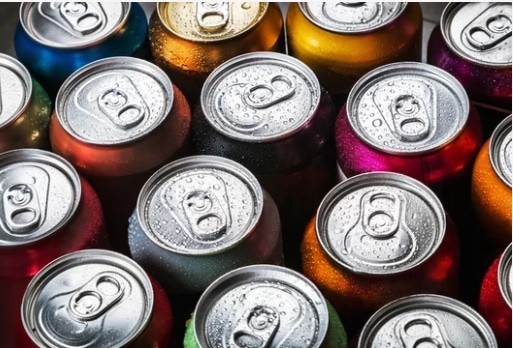Chances are that you have had, at least one carbonated drink this week, or the week before. If you have not had one already, you probably have plans to. What’s there not to love about carbonated drinks? It is sweet, in fact too sweet, which is why it is very popular among children. But there are lots of adults who regularly have carbonated drinks. Many of them might not know the health effects of carbonated drinks on the body.
Carbonated drinks go by other names – soft drinks, soda, cola, and more. They are usually fizzy because they contain dissolved carbon dioxide, which is why they tend to explode when they are shaken. They also contain lots of sugar and flavours. Most manufacturers always make their ingredients or formula secret, even though they all taste the same. There are so many carbonated drinks in nigeria that are consumed in large quantities daily.
Over the years, there have been warnings and cautions from medical and other health experts for people to cut down on their intake of carbonated drinks. This is due to the numerous health effects associated with taking such drinks. We would be looking at some of those health effects in today’s post.
1. Carbonated Drinks May Cause Diabetes
Perhaps the biggest health effect from excess intake of carbonated drinks is Type 2 diabetes. This is due to the high amount of sugar in these drinks. One can of soda supplies about 150g calories of sugar. Some people can take two or more cans in a week. Numerous medical studies have linked drinking one can of sugary carbonated drink per day to an increased risk of type 2 diabetes This, added to the sugar present in the other foods you eat, increases the risks of getting Type 2 diabetes.
2. Carbonated Drinks Cause Tooth Decay
The sugar, caramel, and acid from these drinks would affect your teeth, leading to tooth decay. There are bacteria in the teeth that feed on sugar. Frequent intake of carbonated drinks gives these bacteria enough to feast on. The activities of these bacteria lead to erosion of the enamel, which causes cavities to form. It is this cavity that is known as tooth decay. Over time, it could cause the teeth to rot, causing excruciating pain to the person, and they may need to have it pulled out by the dentist to enable them to have relief. Carbonated drinks also cause the teeth to lose their colour, resulting in a dulled look.
3. Carbonated Drinks Lead To Gain Weight
Drinking too many carbonated drinks can cause you to add weight over time. Some studies link the consumption of carbonated drinks to obesity. This is due to the sugar content in the drinks, which have a lot of high calories. The sugar does not also satiate hunger, causing you to eat more after having the drink. When you drink carbonated drinks, you fill your body with a lot of calories without satisfying your hunger. If you are looking for ways to lose weight, you should consider completely cutting off your intake of carbonated drinks.
4. Carbonated Drinks Have No Health Value
One thing you have to keep in mind is that carbonated drinks are not healthy in any way. Even though they contain a few nutrients, they are present in small quantities and have no significant positive impact on one’s health.
5. Carbonated Drinks Are Addictive
Many people do not realise this, but carbonated drinks are highly addictive, due to their sugar content. Your brain gets used to the dopamine you get from taking carbonated drinks and craves it. So you may find yourself seeking carbonated drinks 4 or 5 times a week, just to keep your brain happy.
Bottom Line
The health effects of carbonated drinks in the body are not exactly healthy. They can can cause weight gain, increase the risk of type 2 diabetes, cause tooth decay, and can be addictive. It is advisable to drastically limit your intake of carbonated drinks. There are so many healthy drinks you can enjoy and stay healthy.
YOU SHOULD ALSO READ:
- What Are The Health Effects Of Eating Cannabis Edibles
- The Health Effects Of Seasoning Cubes You Should Know
- Adverse Health Effects of Smoking Shisha
- 5 Health Effects of Kerosene You Might Not Know
Collins Nwokolo is a human physiologist, writer and health enthusiast. He loves writing helpful articles on health and fitness, which he enjoys sharing with everyone.








